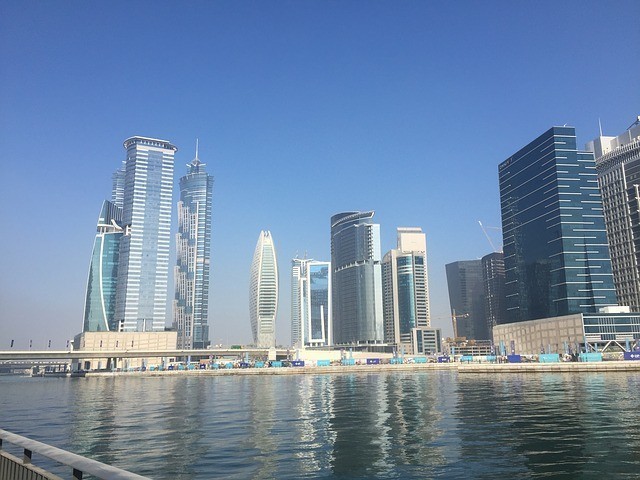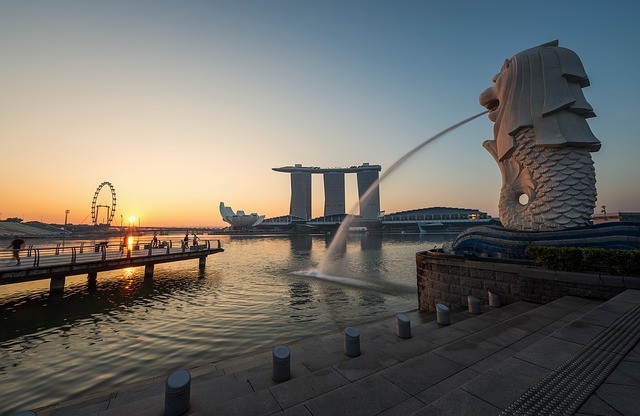Africa has been steadily rising as key operator for global economy with its abundant natural resources.
As reported by the African Development Bank (AfDB), the continent has over 30% of the world’s mineral resources. The continent’s combined population of 1.2 billion will reach the working age by 2020, providing the continent an eager and young labor force.
The African economy has proven to be strong and irrepressible despite the shifts in its GDP growth rate. In 2016, the 5.5% average GDP experienced by the Sub-Saharan African (SSA) decreased to 3.4%, however, World Bank has projected that the region has shown improvement and GDP will reach 4.1% in 2017 -2018.
Changes in the continent proved to be positive to its economy. Its young and vibrant population has attracted the attention of international firms and investors are now shifting focus to consumer oriented industries rather than to extractive activities such as mining. In effect, the continent will be reaping promising rewards to these changes. African household and business to business (b2b) consumption are projected to reach $5.6 trillion in 2025, according to the Mckinsey Global Institute. Even if the continent’s weaknesses in infrastructure can be hindrance to these rewards, this weakness is also a big vehicle for large opportunities of development.
Economy of Mauritius
One of the countries in Africa that has been a preferred choice of expanding business is Mauritius. Known as the “Singapore of Africa”, Mauritius has attracted investors through its political and economic stability, risk mitigating avenues and defined legal and regulatory framework as well as its professional labor force and modern infrastructures.
Investors, traders and private companies can also enjoy access to different African markets through the agreements and relationships Mauritius has formed. The country has relationships with prominent African and international organizations such as the South African Development Community (SADC), the Common Market for Eastern and Southern Africa (COMESA), the World Trade Organization and the Commonwealth of Nations. The country has also entered into network agreements, composed of 23 signed Investment Promotion and Protection Agreement (IPPAs) and 20 Double Taxation Avoidance Agreements with other African states.
The political stability of Mauritius is attained through its democratic government, a well-regulated financial services sector and an effective legal system. The country has been ranked as no. 1 in overall governance in Africa for the past 10 years by Mo Ibrahin Index of African Governance, a comprehensive collection of data on African governance.
Its economic stability is evidenced by the sustained economic growth and economic diversity it has experienced. The GDP of the company has been consistently growing by an annual average of 5.1% between 1977 and 2009. Its economy is no longer dependent on the export of sugar cane but rather it is now supported by textile, financial and business services and tourism industries.
Mauritius, seeking to become a high-income economy, has been actively inviting foreign nationals and investors in to the country. Its modern infrastructures and financial incentives boosts the country as a regional hub for international firms.
The foundation of the fiscal regime of Mauritius is its transparent system which promotes equality and its competitive tax brackets for individuals and businesses as the tax rate is at 15%. Its regime has created separate and independent economies throughout the country. Investors are also provided with a very tax efficient platform since there are no forex controls and foreign companies enjoy free repatriation of profits.
To fully establish its status a collaborative and responsible international financial hub, Mauritius has taken significant moves to comply with international best practices. The country has signed with the OECD Multilateral Convention on Mutual Administrative Assistance Tax Matters in June 2015 to improve its transparency and collaboration framework. The country is also a member of the Early Adopters Group, an organization committed to the early implementation of Common Reporting Standards (CRS).
In its efforts, Mauritius has been rated by the OECD Global Forum as a Largely Compliant Jurisdiction, making the country at par with developed countries such as the US, the UK and Germany. It is also the first African countries to sign up to an Intergovernmental agreement with the US for the implementation of the Foreign Accounts Tax Compliance Act (FATCA). The country is also partOECD’s Inclusive Framework that seeks to implement the Base Erosion and Profit Shifting (BEPS) recommendations and promote beneficial ownership information.
Establishing Business in Mauritius
The process of establishing a business in Mauritius is easy. The business structures differ in terms of category, nature and type of company. Choosing a corporate form is dependent on the type, source and volume of the entity to be established.
The two main corporate forms in Mauritius are as follows:
- Category 1 Global business license (GBC 1)
- tax resident in Mauritius and has access its network of 43 DTAAs signed by Mauritius with African and non-African states
- taxed at 15% for income generated within Mauritius and maximum of 30% outside the country
- not subject to withholding tax on earnings within remitted abroad
- Category 2 Global business license 2 (GBC 2)
- non-tax resident
- cannot do business within Mauritius
- not subject to corporate taxation in Mauritius and can trade in any currency except the Mauritius rupee
Companies have the option to change its license from GBC 2 to GBC 1.
The types of company in Mauritius are as follows:
- Company limited by shares
- Company limited by guarantee
- Company limited by shares and guarantee
- An unlimited company
- A foreign company
- Limited life company
Ease in doing business
In World Bank Group’s Ease of Doing Business report for 2017, Mauritius ranks 49 out of 189 countries. World Economic Forum’s Global Competitiveness Index named Mauritius as sub- Saharan Africa’s most competitive economy and ranks 45 out of 138 countries.
The advantages of doing business in Mauritius are:
- Good banking system
- More than a 100 accounting and auditing firms
- No foreign exchange controls
- A legal system based on English and French law
- A bilingual workforce, as the main languages in the country are French and English
- Strategic time zone
In conclusion, Mauritius has become a highly attractive country for establishing businesses especially for investors aiming to expand into Africa. Although, the qualities that Mauritius boasts may not be an assurance for a successful business in Africa, they contribute to the likelihood for success.























 IMC Group
IMC Group